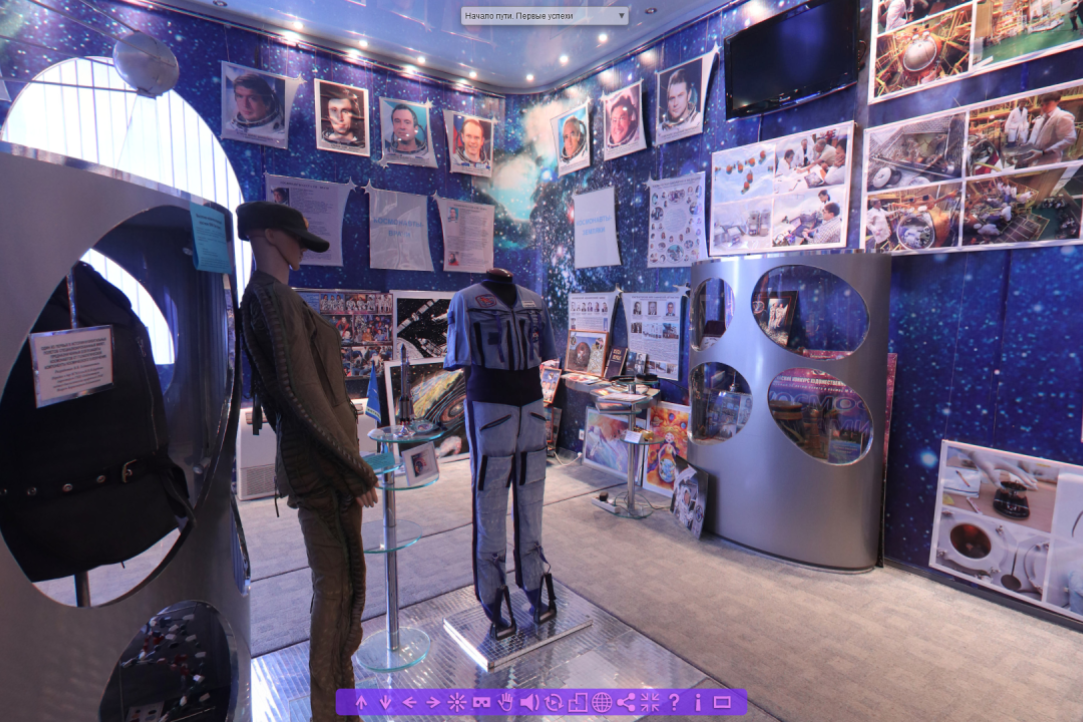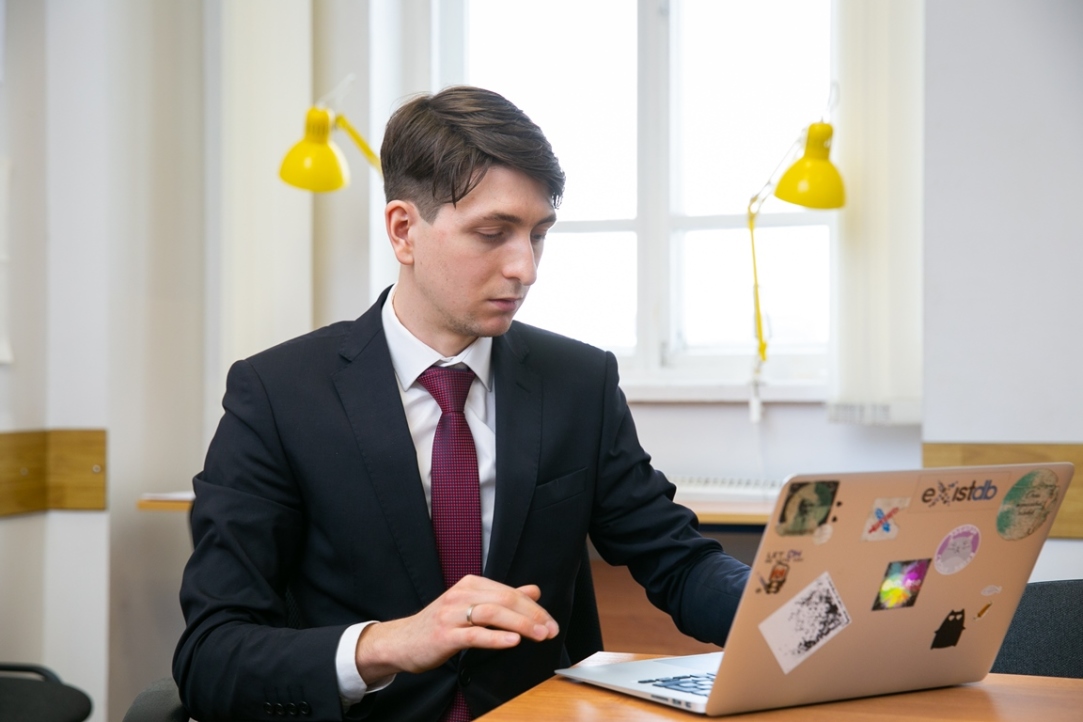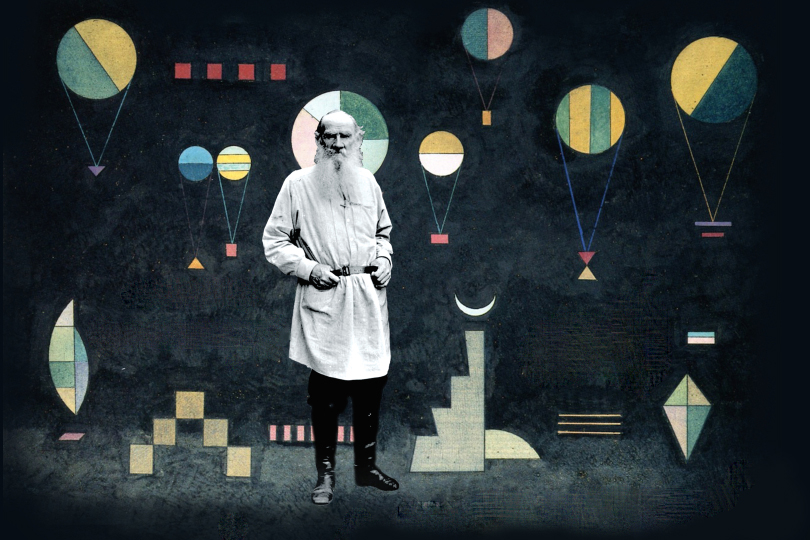
Student Conference on Computational Linguistics Held at HSE University in Nizhny Novgorod
ConCort 2023, a forum dedicated to research in corpus technology and computer science in the humanities, brought together experts and students from all over Russia. The participants discussed the latest developments in corpus linguistics, including the rapidly developing field of digital humanities.

HSE University-Perm Master's Student Creates Virtual Tour of Museum of Space Biology and Medicine
Viktor Durov, a second-year student of the Master's programme in Digital Humanities and an employee of the Department of Pedagogics and Humanities at Voronezh State Medical University named after N. N. Burdenko, has developed an interactive virtual tour around the Museum of Space Biology and Medicine named after V. V. Antipin in Voronezh.

‘Our Strength Is in Our Interdisciplinarity, Both Methodologically and Practically’
What are the necessary digital competencies for students of humanities? Where can they apply their knowledge and skills? What projects in digital humanities are currently underway at HSE University Perm? Dinara Gagarina, HSE University-Perm scholar and the national representative of Digital Humanities Course Registry, answers these and other questions in her interview with the HSE Look.

Digital Publications: Present and Future
Anastasiya Bonch-Osmolovskaya, Associate Professor at the School of Linguistics and Head of the Master’s in Digital Humanities, took part in the first webinar of the UniverCities and Culture series held by the University Network of European Capitals of Culture and the Network of Universities from the Capitals of Europe (UNICA) on November 17. She spoke about The Digital Tolstoy Initiative, a joint effort by linguists, philologists, and programmers to develop a digital 'semantic' edition of Leo Tolstoy's complete works. In her interview, Dr Bonch-Osmolovskaya talks about the initiative and other digital humanities projects at HSE University

New Master’s Programme at HSE Will Give Humanities Scholars New Digital Tools
The new Master's Programme ‘Digital Humanities’ now welcomes applicants for its first cohort, which will begin in the 2019-2020 academic year. Programme Head Daniil Skorinkin discusses how digital methods empower researchers, what the programme will cover, and why both humanities scholars and techies are welcome the programme.
Digital Humanities: A God of Many Faces
These days, no scientific research is carried out without the use of digital media for the production or dissemination of knowledge. The term ‘Digital Humanities’ reflects this process and constitutes a scientific field where humanists not only aim to use a certain software, but also to understand research using quantitative semantics. However, digital infrastructures are not the same globally. In her talk at the HSE April International Academic Conference Dr Gimena del Rio Riande addressed various issues that arise in connection with digital humanities.
Examining the Digital Humanities from a Geopolitical and Technocritical Perspective
Gimena del Rio Riande, a researcher at the Consejo Nacional de Investigaciones Científicas y Técnicas (CONICET, Argentina), studies the development, use, and methodologies of scholarly digital tools, as well as how new scientific fields like digital humanities are ‘born’ in a country where technological issues are part of the social, cultural and economic context. At the upcoming XIX April International Academic Conference on Economic and Social Development, she will be giving a lecture entitled ‘Understanding Cultural Persistence and Change’.

Digital Humanities – What Is It and Why Is It One of the Newest Revolutions in the Humanities?
The scientific landscape is changing before our eyes. Different sciences are becoming more and more intertwined with one another, and this sometimes creates quite unexpected combinations, such as the digital humanities. This field is developing rapidly, with conferences and summer schools now being held on the subject. In addition, HSE recently devoted an entire week to the Digital Humanities. But what is this field and why is it so important?
'What Convinced Me to Come Here Was HSE's Focus on Research'
Frank Fisher, Associate Professor in the School of Linguistics, moved to HSE in 2016, having previously worked at Göttingen Centre for Digital Humanities. With his significant experience in the field, Frank instantly gave boost to digital humanities research at HSE. He became the co-founder of the Centre for Digital Humanities at HSE and is leading a new Junior Research Group on digital literary research. In January Frank became a co-director of DARIAH, a pan-European research infrastructure, with hopes to leverage his involvement there to the benefit of research projects at HSE.
‘These are the People Who Will Shape the Agenda in the Humanities’
The first Moscow-Tartu School in Digital Humanities has taken place at the Leo Tolstoy House and Museum in Yasnaya Polyana. The school‘s aim is to create an interdisciplinary academic environment in which modern computer methods are applied to the study of texts. The school was organized by the HSE School of Linguistics, Leo Tolstoy House and Museum in Yasnaya Polyana, and the Department of Russian Literature at the University of Tartu.


Deadline for applications to present academic reports - January 20, 2025